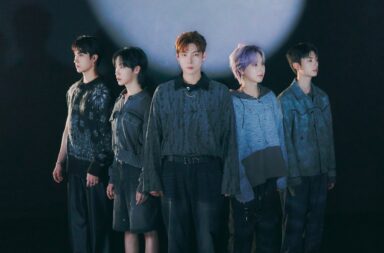
It was as if Mnet struck gold when the network launched its idol survival competition, Produce 101, back in 2016. With four seasons, the show is undeniably a success, serving as a launchpad for many popular idol groups and soloists today. Moreover, it created a ripple effect in the entertainment industry, prompting other broadcast stations to launch their own idol survival shows.
Eventually, the public grew tired. Such shows lost their luster as the music industry was already swelling with idol groups, not to mention the show has become synonymous with vote manipulation.
Then Street Woman Fighter drew in a massive positive reception, thanks to the contestants’ unfiltered personalities. The results were unexpected, but Mnet saw it as an opportunity to win again the public and change its negative reputation. Looking to non-idol personalities for help, the network found its new target—bands.
While there are idol groups that are loved by the public, bands have a different appeal. They often perform at live music festivals or gigs rather than on music shows, as the latter form has been criticized for not allowing artists to plug in their instruments or give them enough time to set up and rehearse. Bands are also viewed as more raw and authentic, as they are often more meticulous about their music instead of their image. They captivate audiences with their lyricism and arrangement, a world far from that of idol groups, whose songs are often produced by external creatives, including foreign producers.

Great Seoul Invasion introduces Korean band music to a global audience. While it is uncertain how well-received Korean band music is abroad, one cannot deny Mnet’s global reach. While Mnet tried to push for a messy, cutthroat battle narrative, this attempt was thwarted as the bands and judges steered the show in a brighter, more festive direction.
Note: This review contains spoilers of the show.
Taking an approach slightly different from the Produce series, Mnet held a live-streaming audition for all participating bands. The audition clips were uploaded on Mnet’s official YouTube channel, and bands with the most number of likes would advance to the next round.
The list of participants was a mix of band competition veterans and rookies. Some notable names were Onewe, who are perceived as more of an “idol band”; Surl, an established leader in the K-indie scene and has earned recommendations from the likes of BTS’ RM and IU; Band Nah, whose discography includes soundtracks from dramas such as Yumi’s Cells and Melancholia; W24 who are already widely popular in Latin America; and South Club, which was formed by former Winner member Nam Taehyun.
Central to Mnet’s “battle of the bands” narrative is Mr. G, a faceless mastermind who is in the search of a global K-band. Throughout the show, his identity is never revealed. The idea was actually laughable, and looked like a desperate attempt to add drama. He calls for the help of his right-hand-turned-emcee, actor Yoon Bak, who became known for his role as Han Ki-joon in Forecasting Love and Weather, but started out as a drummer prior to acting.
To help select the next global K-band, Mr. G selects some of the most reputable names to act as team leaders: Ko Young-bae of Soran, Peppertones, Lee Juk-jae, Minue, Lee Seung-hyub and Kim Jae-hyun of N.Flying, and Produce alumni Kwon Eunbi and Kim Jaehwan. The majority of the roster are pretty impressive given their experience in band music and songwriting, except for Eun-bi. While some of her feedback and mentorship were quite helpful in improving image and appeal, her comments were lacking compared to the other judges. Her situation is comparable to that of CL in Superband 2; she also did not have experience in band music. While Eunbi was likely chosen because of her participation in a survival show, Mnet could have invited someone more suitable like Younha or Baek Yerin.
Minue and his band Midnight Romance participated as undercover contestants during the live streaming audition, in an attempt to provide insight on other bands. However, when it was revealed that he was actually a mentor, he did not give insider comments as to how such an undercover mission should be carried out.
Throughout the show, it was unclear what exactly the team leaders are looking for or what their thought process is. In Round 1, much to everyone’s surprise, no one initially picked Surl. The only all-female band, Walking After U—even while ranking first in the live stream audition—also wasn’t selected. Later in the 4 Bars Challenge Mini Mission, Owalloil was chosen over Lacuna, even though the former technically did not include the assigned guitar riff. Are the leaders looking for diamonds-in-the-rough, or polished and refined crystals?
The team leaders act both as mentors and judges, and there definitely were a lot of heartwarming moments that built up the bands’ confidence on stage and on TV. A memorable moment was during Round 3 when bands were given the mission to dedicate a song to an influential figure. Patz decided to dedicate their performance to Woo Young-mi, a prolific menswear fashion designer. As their mentor, Minue provided amazing stage direction to help their performance stand out. Using their tall height to the band’s advantage, Minue suggested that they each enter and exit as if they were walking on a runway.
One good thing Mnet did in this show is enlist the help of extra professional judges in some of the rounds. Unlike in the Produce series, where the identities of the professional judges were unknown, Great Seoul Invasion reveals a mix of established bands (such as Crying Nut, Romantic Punch, and ADOY) and record label producers. It was clear that they were looking for dependable and impactful bands, and they gave wonderful constructive comments.
Of course, it isn’t an Mnet show without a bit of controversy. Prior to announcing the 18 bands that passed the livestream audition, Movning and Nerd Connection both announced that they were withdrawing from the competition. Neither elaborated on the details, but fans speculated that there were conditions in the contract that the bands did not agree with. The program was also surprisingly postponed to a month later.
Mnet’s infamous “evil editing” also reared its ugly head. In Round 1, Great Seoul Invasion tries to pin the bands against each other by having them rate each other’s performances, particularly seen with D82 (with former Lunafly member Han Seung-yun as frontman) and Next Generation. There are also participants that fall victim to what the show wants their characters to be. There’s prejudice against idol bands among indie bands, such as in the case of Onewe. Despite their humble beginnings as an indie band, they receive the “idol treatment” just because they are signed by a big and known agency. Knowing their popularity, the show turned things against them, deliberately ranking them low. Surl’s participation was the biggest shock among the bands, and everyone knew they are the strongest contender. However, even after being hyped up through “evil editing”, they were not selected by any of the mentors, and the reasons for this were either not provided or not aired.
There are also those whom the show chooses as antagonists and protagonists, such as Nam Taehyun and Owalloil. Nam Taehyun has always been a controversial figure, and it seemed that the show wanted to continue with that, even amidst his new beginning in South Club. In contrast, Owalloil was granted the “angel edit” by highlighting their humble beginnings. Not to undermine their talent and their genuineness, but it is apparent how Mnet loves an underdog-takes-the-crown story.
In the end, Touched emerged as the winner after consistently being on top since Round 1. One positive outcome of this competition is mutual respect among bands and a greater appreciation of band music. While all were eager to win, there was no tension or rivalry. The participants were just striving to do their best and compete against their last performance. Mnet wanted Great Seoul Invasion to be a battlefield, yet they gave up halfway after seeing bands supporting other bands and acknowledging their strengths. This twist is a reminder that there doesn’t need to be any fighting when it comes to music. It’s as the participants were sending the message, “Make music, not war.” May Korean band music receive much love overseas, just as K-pop and K-hip-hop do.
(YouTube. Images by Mnet and Viu)


